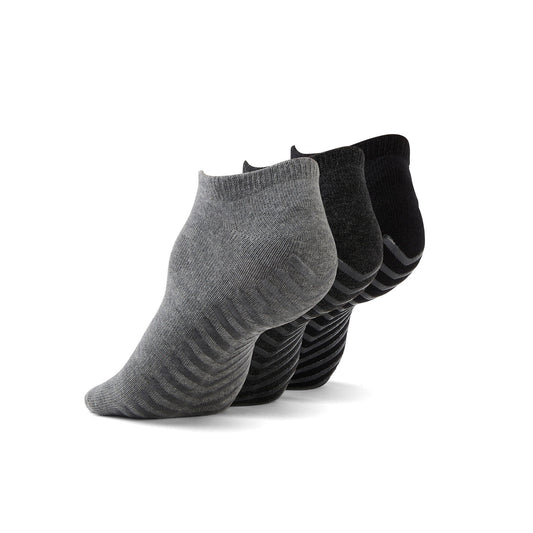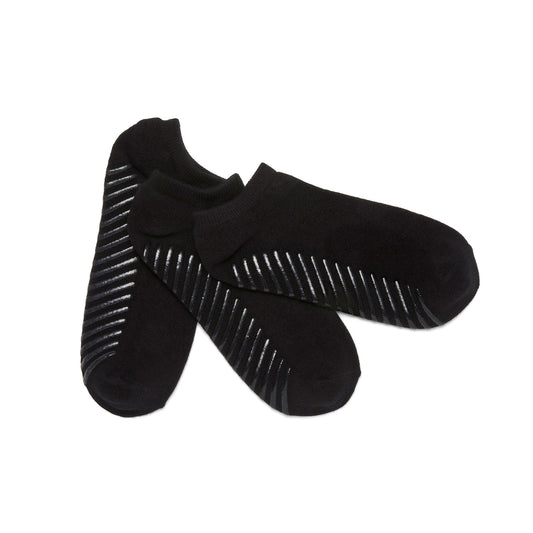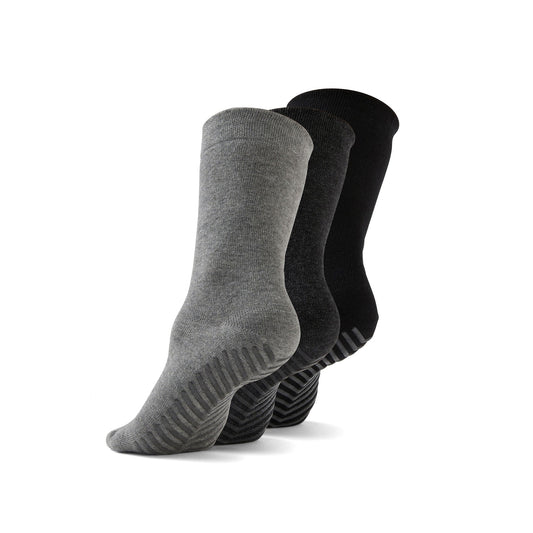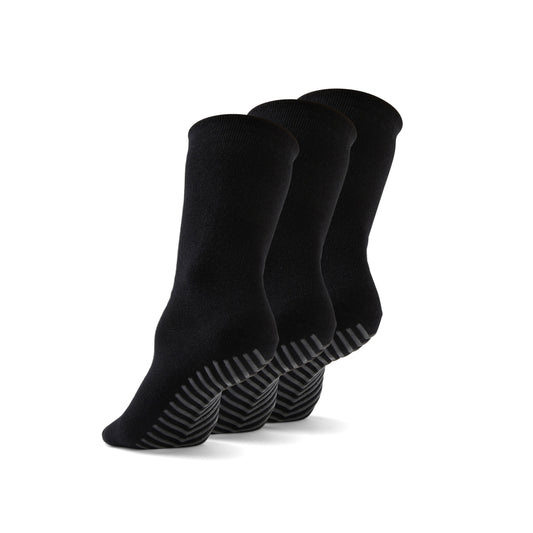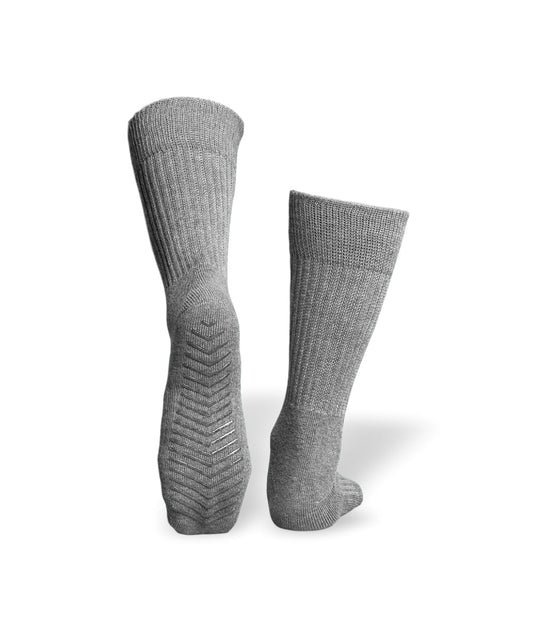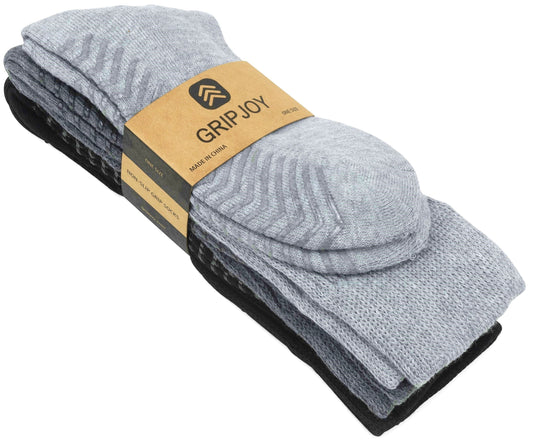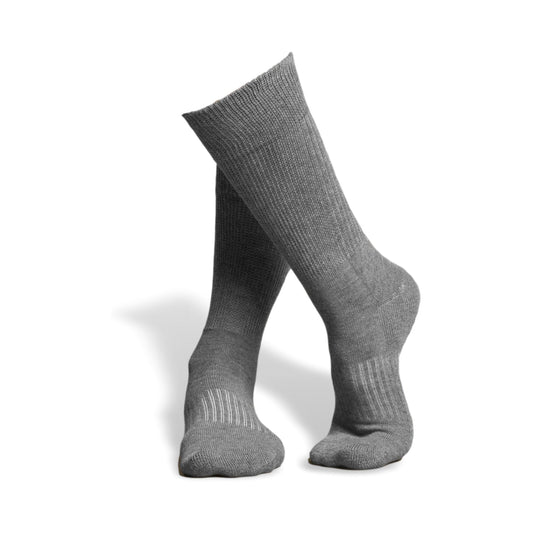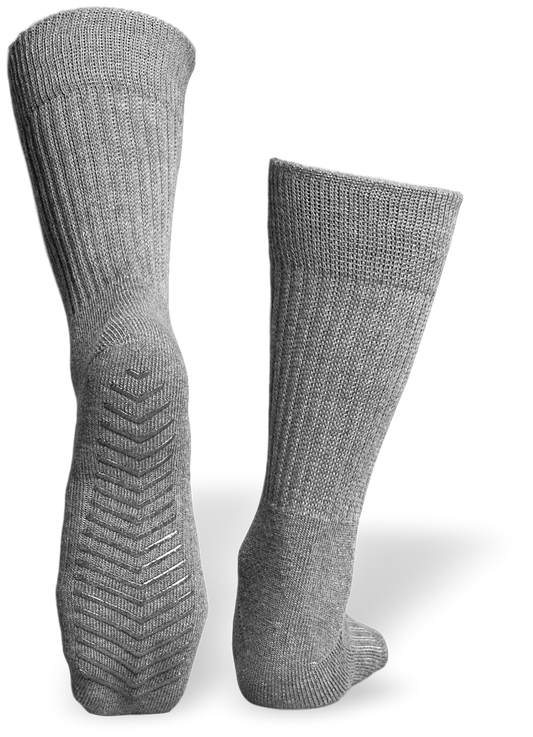In recent years, the fashion industry has witnessed a remarkable transformation characterized by a growing emphasis on inclusivity and diversity. Millennials, often seen as the driving force behind this shift, have played a pivotal role in advocating for a more inclusive fashion landscape. At the heart of this movement lies adaptive fashion, a concept that extends beyond catering to individuals with disabilities, embracing a broader definition of beauty and functionality. We will delve into the world of inclusive fashion and explore how adaptive fashion is reshaping the industry and promoting inclusivity, with a special focus on June Adaptives as a pioneering brand in this realm. June adaptive’s Mens Magnetic Snaps Sherpa is a great example.
The Rise of Inclusive Fashion
The traditional fashion industry has long adhered to narrow standards of beauty and functionality, often neglecting people with disabilities and perpetuating unattainable ideals. However, the rise of social media and the emergence of a more socially conscious generation of consumers, especially millennials, have fueled a significant shift towards inclusivity.
A Diverse Generation
Millennials, born between 1981 and 1996, are renowned for their diverse backgrounds, perspectives, and experiences. This generation places a high value on individuality and authenticity, which has translated into a strong demand for fashion that mirrors their unique identities and accommodates their diverse needs. For millennials, inclusivity is not just a buzzword; it is a fundamental principle that guides their consumer choices.
Social Media and Activism
The advent of social media platforms has empowered millennials to express their opinions and advocate for change. Platforms such as Instagram, Twitter, and TikTok have become powerful tools for calling out brands that neglect inclusivity while celebrating those that embrace it. This collective action holds fashion brands accountable, encouraging them to prioritize diversity and accessibility.
Adaptive Fashion: A Key Component of Inclusive Fashion
At the core of the inclusive fashion movement is adaptive fashion, an innovative approach to clothing design aimed at making fashion accessible to everyone, regardless of their physical abilities or differences. Adaptive fashion is not solely focused on functional design; it also seeks to empower individuals and promote self-expression.
Functional Design
The primary facet of adaptive fashion is its functional design. Traditional clothing often presents challenges for individuals with disabilities, making it difficult for them to dress independently or comfortably. Adaptive fashion addresses these issues by incorporating thoughtful features such as magnetic closures, adjustable waistbands, and easy-to-fasten buttons and zippers.
For instance, June Adaptive's, a pioneering brand in this field, has introduced a range of adaptive clothing that includes innovative designs like magnetic closures, discreetly adapted seams, and adjustable elements. These features not only enhance the overall fashion experience for people with disabilities but also empower them to express their style with confidence. A great example of this is the Magnetic Shirt found at June Adaptive.
Mens Short Sleeve Shirt with Magnetic Buttons
Representation Matters
Another crucial aspect of adaptive fashion is representation. Millennials have championed the idea that fashion should reflect the diversity of the real world. Inclusive fashion campaigns often feature models with disabilities, different body types, and various backgrounds. This representation helps challenge the conventional beauty standards perpetuated by the fashion industry. June adaptive’s fashionable clothes further help with this, such as the fashionable Maxi Dress.
When young people see models who look like them, they feel seen and valued. This sense of inclusion fosters a more positive self-image and encourages greater self-confidence. Brands like June Adaptives, which prominently feature models with disabilities in their advertising campaigns, have received widespread praise for their commitment to diversity.
Sustainable and Ethical Practices
Inclusive fashion is closely tied to sustainability and ethical practices, aligning with millennials' environmentally conscious choices and support for brands that prioritize sustainability. Many adaptive fashion brands, including June Adaptives, are adopting eco-friendly materials, ethical manufacturing processes, and transparent supply chains. This alignment with sustainability resonates with millennials, who seek products that are not only inclusive but also environmentally responsible.
The Business Case for Inclusivity
Inclusivity is not just a moral imperative; it is also a strategic business move. Fashion brands that embrace inclusivity tap into a vast and underserved market. According to the World Health Organization, approximately 15% of the world's population has some form of disability. This represents a significant consumer base that, until recently, was largely overlooked by the fashion industry.
A Growing Market
As millennials and Generation Z become the dominant consumer groups, their preferences and values shape market trends. By catering to the diverse needs of these generations, brands can gain a competitive edge and increase their market share. Inclusivity is not only the right thing to do; it is also a strategic move to capture a growing market.
Fostering Brand Loyalty
Millennials are known for their brand loyalty when they find companies that align with their values. Brands that embrace inclusivity not only attract new customers from diverse backgrounds but also foster long-term loyalty among these customers. When individuals feel seen and respected by a brand, they are more likely to become loyal advocates and repeat buyers.
Positive Public Relations
Embracing inclusivity can also lead to positive public relations for fashion brands. Millennials are quick to share their opinions on social media, and when a brand is perceived as inclusive and socially responsible, it can generate positive buzz and enhance its reputation. Conversely, brands that are seen as exclusionary or insensitive can face public backlash and damage to their image.
Leading the Way: June Adaptives and Brands Embracing Inclusivity
Several fashion brands have taken significant steps towards inclusivity and adaptive fashion, earning praise and admiration from millennials and consumers of all ages. June Adaptives, in particular, has stood out as a trailblazer in the realm of inclusive fashion.
June Adaptives: Pioneering Inclusive Fashion
June Adaptives has emerged as a frontrunner in the world of adaptive fashion, known for its commitment to inclusivity and innovation. The brand's adaptive clothing range encompasses a wide array of thoughtfully designed pieces, featuring elements such as magnetic closures, adjustable seams, and discreet adaptations that cater to individuals with disabilities.
Moreover, June Adaptives place a strong emphasis on representation. Their advertising campaigns feature models with disabilities, sending a powerful message that beauty comes in diverse forms. This approach not only resonates with millennials but also sets a compelling example for the entire fashion industry.
Other Notable Initiatives
In addition to June Adaptives, numerous fashion brands have taken significant strides towards inclusivity. These initiatives span various aspects of adaptive fashion, including functional design and representation. Brands are increasingly recognizing the importance of catering to a broader spectrum of consumers.
Empowering Millennials to Drive Change
While many fashion brands are making progress in embracing inclusivity, millennials are not content with superficial gestures. They are actively engaged in shaping the future of fashion and promoting inclusivity through various means:
Social Media Activism
Millennials are leveraging social media platforms to call out brands that fall short in embracing inclusivity and diversity. Hashtags like #InclusiveFashion and #RepresentationMatters have gained traction, sparking essential conversations and holding brands accountable for their actions.
Supporting Inclusive Brands
Millennials are harnessing their purchasing power to support brands that prioritize inclusivity and adaptive fashion. They are proactively seeking out and endorsing brands that align with their values, contributing to the success of these brands and driving market trends.
Advocacy and Education
Millennials are becoming advocates for inclusivity through various channels, such as blogs, podcasts, and social media platforms. They are educating themselves and others about the importance of inclusivity in fashion and encouraging meaningful change in the industry.
In conclusion, inclusive fashion, with a specific focus on adaptive fashion, has gained significant momentum in recent years, largely driven by the values and preferences of millennials. June Adaptives and other pioneering brands are leading the way by prioritizing functional design, representation, sustainability, and ethical practices. As millennials continue to advocate for inclusivity and hold brands accountable, the fashion industry is poised for a more diverse, accessible, and socially responsible future. In the journey towards a truly inclusive fashion landscape, millennials are at the forefront, pushing for change and reshaping the industry for the better.

